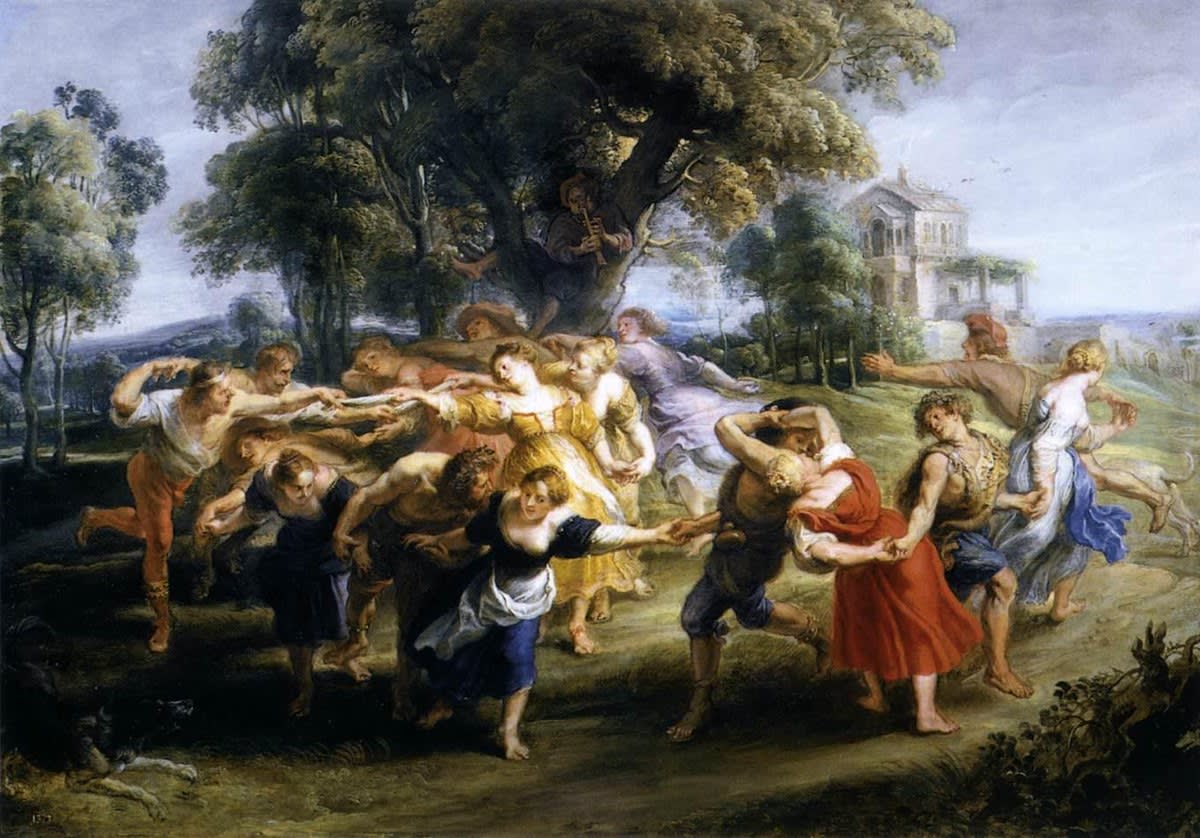FANCY
Manage episode 494386350 series 3540370
My father was a good-looking fellow, but my mother, in her day — well! So of course my father, who must have learned it in Dad School, where all of us Dads learn things like how to talk to other Dads about the Best Way to Get From Here to There, would say the following when he met somebody who he thought had a sense of humor and wasn’t going to stand on ceremony. My mother’s name is Jane, so Dad would say, “I’m Tarzan, she’s Jane, I’m fancy, she’s plain!” The joke was that my mother wasn’t plain at all, so she’d just laugh, every single time. She learned to do that in Mom School. And in fact, when my mother and father met Debra’s mother and father for the first time, and her favorite Aunt Pat to boot, it’s exactly what he said. Afterwards, Aunt Pat said, “They’re our kind of people.”
So there’s our Word of the Week: fancy. And as with last week’s silly, what a crazy word it is! When Huck Finn suddenly happens upon something eerie, he says, “It gave me the fantods.” An Americanism, you say? Evidently not; they were getting the fantods in England forty years before, and they got ’em a hundred years later, when Dorothy Sayers was writing that wonderful Peter Wimsey mystery novel, The Nine Tailors, and Lord Peter had the fantods when he heard those nine bells tolling in the belfry. I haven’t heard anybody outside our family use the phrase lately, but it still appears to be very much alive. Where’s it from? The guess is that it is a jesting play on fantasy, suggesting here something from the Twilight Zone or The Outer Limits, something phantasmagorical — and that’s just a form of the same word in its original Greek spelling, phantasia, either your power of imagination, your fantasy, or what you see by that power, a fantasy or phantasm. Odd it is, that the fantasy is usually seen as something mysterious but ultimately good, as the Duke in Measure for Measure is called, for his wise and secret ways, that “mad fantastical duke of dark corners,” but the phantasm is uncanny and terrible or delusive, as Satan calls Death “that phantasm” when he first meets him at the gates of Hell, a creature that is and is not. We’d like, as Milton has it in L’Allegro, his happy youthful paean to merriment, “to trip the light fantastic,” but we’d sure not want to galumph the heavy phantasmagorical.
But what’s with fancy? Well, that’s just fantasy a bit contracted. As a noun, it took up the more pleasant features of fantasy or imagination: Milton says that fancy serves Reason as a lesser faculty, presenting her with “imaginations, airy shapes,” which Reason joins or disjoins, forming what we affirm or what we deny. Of course, what agitates our imagination or our fantasy or fancy more than does love? So we hear the tale, in A Midsummer Night’s Dream, of how Cupid once tried to shoot a votaress of Diana, the goddess of chastity, but the chaste beams of the moon caused his arrow to go awry, and the lovely girl passed on her way, “in maiden meditation, fancy-free.” Here it seems that to be fancy-free is to be free of the fancy of love; though I suppose you could also read it as that she’s free in her fancy, dwelling in her pure and innocent imagination. I think the first reading is the more likely, but it’s the second that’s taken hold: we call people fancy-free when they’re without a care in the world, and they can do whatever they fancy — and there the word is used as a verb. “What do you fancy?” somebody might ask you at a furniture store or a gourmet grocery; I don’t know if you’d hear it at McDonald’s, but who knows? But “in the spring,” as our beloved Alfred Tennyson tells us, because so it was in the history of all mankind until yesterday, “a young man’s fancy lightly turns to thoughts of love.”
So what’s fancy? Now the word’s an adjective! In England, “fancy-dress” means a costume party, but you can get dressed up in a fancy way if you’re going to a dance and you want to look bright and bold. Something can be too fancy — I like my food mostly without a lot of sauces and dressing that put fancy masks on what I’m eating; I like steak, and not steak-sauce, but that’s just me, I guess. In general, fancy still suggests what’s decorative, pretty, a bit complicated maybe, but sharp and well-dressed and pleasing to the eye — and to the fancy, which is why we fancy it. It’s well that it should be so!
Word & Song by Anthony Esolen is an online magazine devoted to reclaiming the good, the beautiful, and the true. We publish essays each week, on words, classic hymns, poems, films, and popular songs, as well weekly podcasts on a wide variety of topics. Paid subscribers receive audio-enhanced posts, on-demand access to our full archive, and may share comments.
Note: Our full archive of over 1,000 posts, videos, audios is available on demand to paid subscribers only. We know that not everyone has time every day for a read and a listen. So we have built the archive with you all in mind. Please do browse, and please do share posts that you like with others.
We enjoy reading your comments, and we encourage you to read (and reply to) the comments which other members share on our posts. We’ve got a great group of folks joining us in this journey of reclamation!
Thank you, as always, for supporting our effort to restore every day a little bit of the good, the beautiful, and the true.
8 episodes




